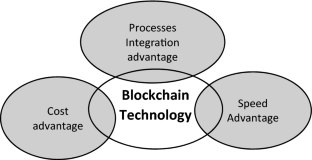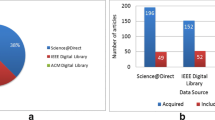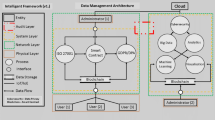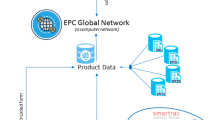Abstract
This study is aimed at covering the application of blockchain technology (BCT) in the Indian banking sector and its benefits in banking operations. This paper covers the challenges it faces in implementing blockchain technology. The paper highlights how BCT is addressing key issues such as speedily and securely transmission of data, value to and from various transaction partners, cost of processing payments, new products, and services creation. The paper also covers various advantages brought out by BCT such as automate verification process and eliminating the need for multiple parties to confirm manual validity of transactions. With the advent of BCT, India’s banking and financial systems can be expected to transform the banking process to a new level. This study covers the field investigation as to how existing BCT is helping banks to effectively and efficiently monitor and control the banking process. The respondents were leading banking institutions and FinTech firms in the country. The study result shows that some of the Indian banks have already started their journey in using BCT and they got the benefits. However, they are facing certain challenges in the adaptation and implementation of this new technology. The legal and standardization issues need to be looked into with regards to jurisdictions in cross border transactions and interoperability between different BCT systems. Banks are currently using permission based BCT solutions for very defined (small) eco-system because of the data security reasons. It is like but not exactly the ‘WhatsApp’ group system wherein an administrator decides on membership of the group. However, for each bank, the considerations will differ for the ecosystem required to deploy the BCT solution. The study covers only leading banks and FinTech companies in the country and smaller players in the banking sector. In India financial institutions are at various stages of BCT adoption. They have already seen the benefits of BCT in some processes where BCT is put into use. With time to come with full implementation, BCT will change the picture of banking in India. With BCT the banking processes will be more transparent, faster and cost-effective with elimination of intermediaries. The key benefits will be decentralisation, trust, and security in transactions.


Similar content being viewed by others
Notes
Know Your Customer is the process of a business verifying the identity of its clients and assessing their suitability, along with the potential risks of illegal intentions towards the business relationship. The term is referred to as financial institution’s regulations. Banks and other financial institutions are increasingly demanding that customers provide detailed due diligence information. For example; KYC requirements for opening a bank account are to submit an Aadhaar and PAN as proof of identity, address and registered income-tax payer receptively together with a recent photograph. KYC policies framework of a bank, in general, incorporate the following four elements such as; Customer Acceptance Policy; Customer Identification Procedures; Monitoring of Transactions; and Risk management.
Bitcoin is a cryptocurrency. In other words it is a decentralized digital currency without a central bank or single administrator that can be sent from user to user on the peer-to-peer bitcoin network without the need for intermediaries. Each bitcoin is a computer file that is stored in a 'digital wallet' app on a smart device (phone/computer). People can exchange/transact bitcoins and every single transaction is recorded in the blockchain.
References
Blockchain application and outlook in the banking industry. https://www.researchgate.net/publication/311549710_Blockchain_application_and_outlook_in_the_banking_industry. Accessed 29 Oct 2018
Varghese JJ, Sharma D, Singh NK (2019) Analysing the impact of blockchain technology in India’s digital economy. Glob J Enterp Inf Syst 11(1):98
Swan M (2015) Blockchain: blueprint for a new economy. O’Reilly Media Inc, New York (ISBN 1491920491)
Li Z, Bewaji S (2019) How cross-border payments are evolving. https://www.payments.ca/industry-info/our-research/payments-perspectives/how-cross-border-payments-are-evolving. Accessed 11 Apr 2020
Guo Y, Liang C (2016) Blockchain application and outlook in the banking industry. Financ Innov 2(1):1
Pilkington M (2016) Blockchain technology: principles and applications. In: Xavier Olleros F, Zhegu M (eds) Research handbook on digital transformations. Edward Elgar. https://ssrn.com/abstract=2662660
Nakamoto S (2009) Bitcoin: a peer-to-peer electronic cash system. http://bitcoin.org/bitcoin.pdf
Swan M (2015) Blockchain: blueprint for a new economy. O’Reilly, New York
Ølnes S (2015) Beyond bitcoin—public sector innovation, using the bitcoin blockchain technology. http://ojs.bibsys.no/index.php/Nokobit/article/view/264
Yli-Huumo J, Ko D, Sujin Choi S, Park S, Smolander K (2016) Where is current research on blockchain technology? A systematic review. PLoS One. https://doi.org/10.1371/journal.pone.0163477
RBI White Paper (2017) Application of blockchain technology to banking and financial sector in India. https://monetago.com/wp-content/uploads/2017/01/BCT.pdf
Yoo S (2017) Blockchain based financial case analysis and its implications. Asia Pac J Innov Entrep 11(3):312–321
Hwa CS (2016) Legal issues for the introduction of distributed ledger based on blockchain technology-focused on the financial industry. Korea Financ Law Assoc 13(2):107–138
Guo Y, Liang C (2016) Blockchain application and outlook in the banking industry. Financ Innov 2: 24. https://doi.org/10.1186/s40854-016-0034-9. https://www.researchgate.net/publication/311549710_Blockchain_application_and_outlook_in_the_banking_industry. Accessed Oct 29 2018
Robleh A, Barrdear J, Clews R, Southgate J (2014) Innovations in payment technologies and the emergence of digital currencies, bank of England quarterly bulletin 2014 Q3. https://ssrn.com/abstract=2499397
Mougayar W (2016) The business blockchain: promise, practice, and application of the next internet technology. Wiley, New York
Guo Y, Liang C (2016) Blockchain application and outlook in the banking industry. Financ Innov 2:24. https://doi.org/10.1186/s40854-016-0034-9
Wyman O (2016) Blockchain in capital markets: the prize and the journey
Study (2016) Blockchain rewires financial markets: trailblazers take the lead. https://www-01.ibm.com/common/ssi/cgibin/ssialias?htmlfid=GBP03469. USEN
Kim EJ (2016) Korea’s first block-chain payment settlement, verification of customer authentication technology completed. Hana Financial, Korea Economic Daily
Lewis R, McPartland J, Ranjan R (2017) Blockchain and financial market innovation. Federal Reserve Bank of Chicago. [Google Scholar]
Zhao JL, Fan S, Yan J (2016) Overview of business innovations and research opportunities in blockchain and introduction to the special issue. Financ Innov. https://doi.org/10.1186/s40854-016-0049-2
Bhattacharyya B, Pradhan S (2017) Digital revolution in the Indian banking sector. http://www.forbesindia.com/article/weschool/digital-revolution-in-the-indian-banking-sector/47811/1. Accessed 10 Apr 2020
Mundra SS (2015) Indian banking sector: emerging challenges and way forward. In: Lecture by Mr. S S Mundra, Deputy Governor of the Reserve Bank of India, as part of the Memorial Lecture series launched by State Bank of Mysore Bangalore, 29 April 2015
Prusty N (2018) Blockchain for enterprise: build scalable blockchain applications with privacy, interoperability, and permissioned features. Packt Publishing Ltd, Birmingham, p 28 (ISBN 1788477138, 9781788477130)
Author information
Authors and Affiliations
Corresponding author
Rights and permissions
About this article
Cite this article
Patki, A., Sople, V. Indian banking sector: blockchain implementation, challenges and way forward. J BANK FINANC TECHNOL 4, 65–73 (2020). https://doi.org/10.1007/s42786-020-00019-w
Received:
Accepted:
Published:
Issue Date:
DOI: https://doi.org/10.1007/s42786-020-00019-w




